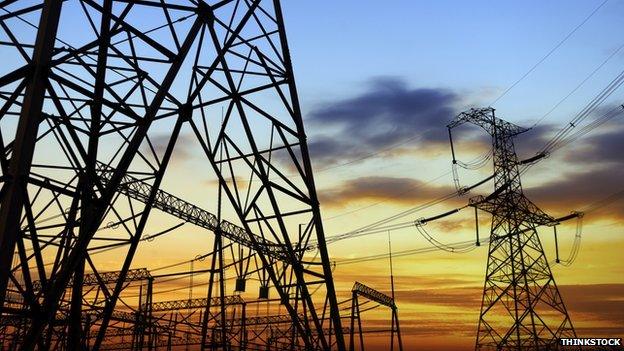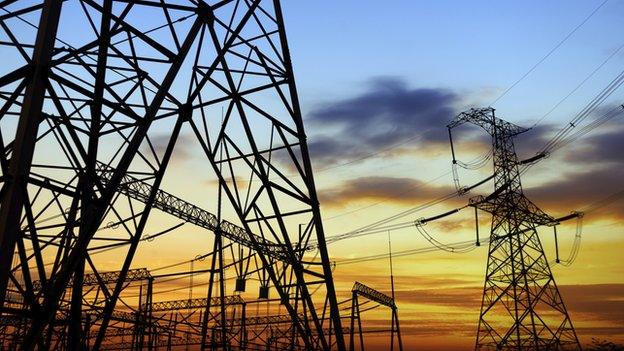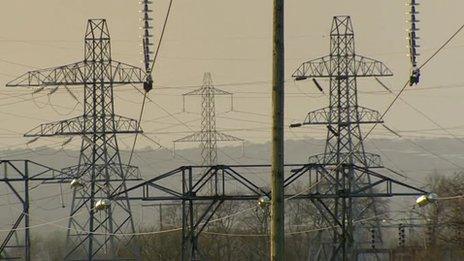Michelin Tyres Plc fears over proposed energy cost rises
- Published

Northern Ireland has the second highest energy prices in Europe
A major employer in Northern Ireland has said its business is threatened by proposed rises in energy costs to fund grants for onshore wind farms.
Michelin Tyres Plc, based in Ballymena, County Antrim, is concerned about the financial impact the subsidies are having on its energy bills.
A wider UK scheme is being ended early by the government but will continue in Northern Ireland.
Michelin said its £9m energy bill has been increased by £75,000.
Figures from the Department of Trade suggest this would add £30,000 on to the bills of the top 200 companies.
Northern Ireland has the second highest energy prices in Europe.
Tailwinds
Michelin Tyres Plc employs 870 people in Northern Ireland.
The firm said the government should assist Bombardier with its anaerobic energy systems projects.
Site manager Gerard Cassidy said: "I have a committed desire to see Northern Ireland manufacturing succeed.
"We need all the tailwinds we can muster, not additional costs."
North Antrim MP Ian Paisley said: "[Stormont politicians] need to take time to consider the implications of any decision, to take evidence from the likes of Michelin, who employ almost 1,000 people."
"If the wrong decisions are made in a rushed manner we will see the knock-on effects for the next 20 years and could in the process place the future of major employers such as Michelin and their fellow manufacturing heavyweights' continued presence in Northern Ireland in severe jeopardy."
Keeping the subsidies going longer in Northern Ireland than the rest of the UK could also cost households £16 extra in their bills.
Jeopardy
The subsidy has been the Northern Ireland Executive's main policy measure to support the development of renewable energy.
Northern Ireland Renewable Industry Group (NIRIG) believes that withdrawing government support would have a "catastrophic" impact on both the industry and the NI economy.
They predict that £470m of investment and 51 onshore wind projects could be put in jeopardy as a result.
NIRIG chairman Patrick McClughan said onshore wind is one of the most cost-effective ways of producing electricity for Northern Ireland in the future.
"The aim is to become support-free within 25 years of the first wind farm becoming operational," he said.
"For investors and consumers in Northern Ireland to see the continuing success of onshore wind, helping to keep electricity bills lower, there needs to be a stable and supportive policy framework."
- Published2 June 2015

- Published27 February 2015

- Published12 February 2015

- Published9 January 2015
